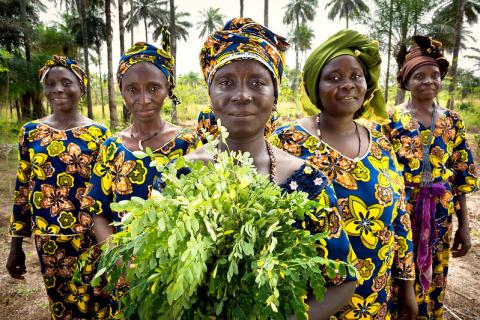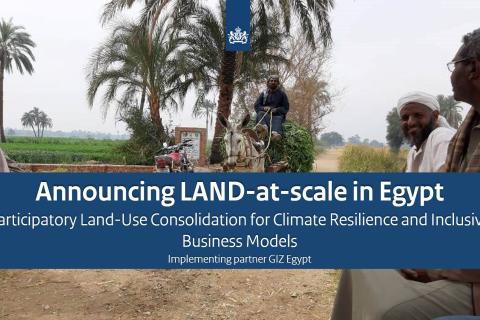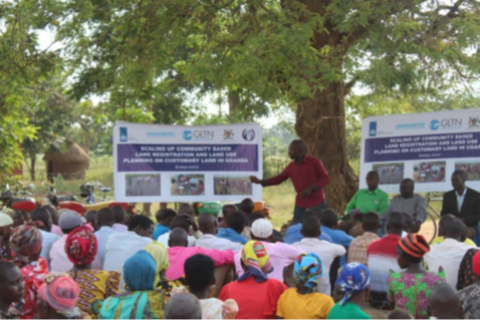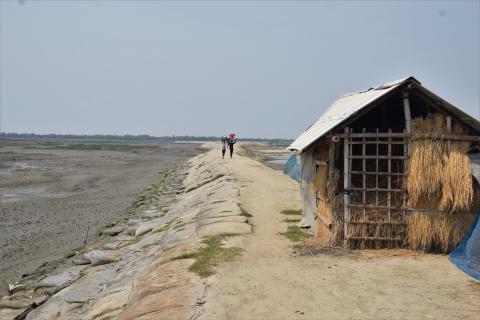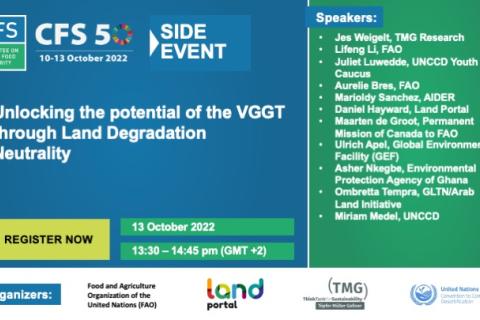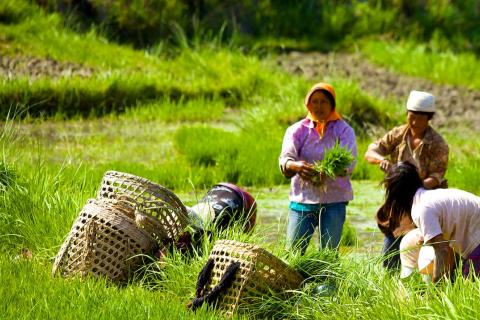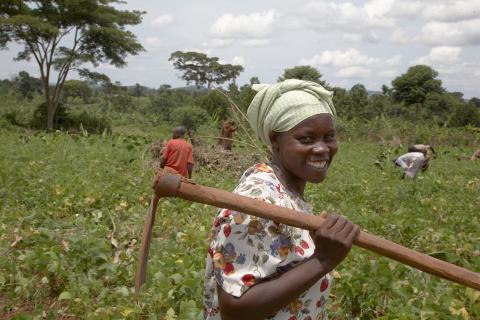Les femmes mènent le changement - pourquoi les droits fonciers des femmes sont importants dans les stratégies néerlandaises et européennes pour l'Afrique
Les femmes possèdent moins de 20 % des terres dans le monde.
La moitié des petits exploitants agricoles dans le monde sont des femmes.
70 % de la nourriture de l'Afrique est produite par des petites exploitations agricoles féminines.

